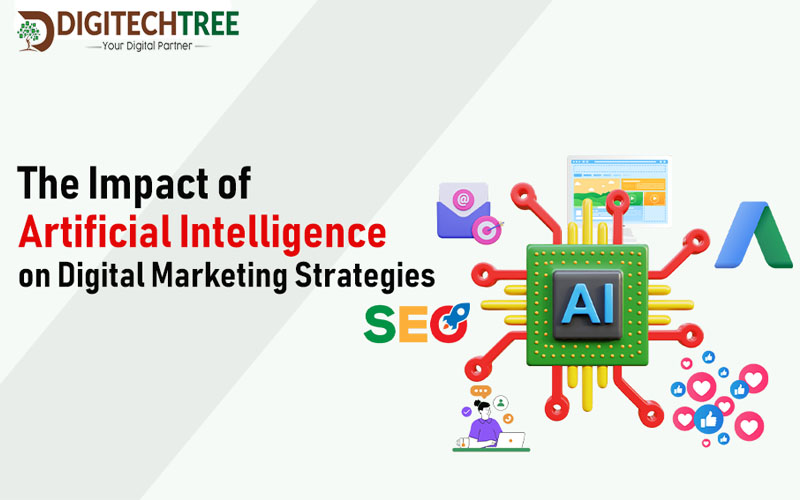Impact of Artificial Intelligence (AI) on Digital Marketing

Artificial Intelligence (AI) is transforming the way businesses plan, execute, and optimize their digital marketing strategies by leveraging data, automation, and predictive analytics, Artificial Intelligence enables marketers to make smarter decisions, improve campaign performance and personalize customer experiences. AI is not just a supporting technology. It is a game-changer in digital marketing. From personalized experiences to predictive analytics and automation, AI is reshaping how brands connect with their audiences. Companies that effectively adopt AI powered marketing strategies will gain a strong competitive edge in the digital era.
1. Enhanced Personalization
AI helps marketers deliver personalized content and product recommendations based on user behavior, preferences, and purchase history. Platforms like Amazon, Netflix, and Spotify use AI algorithms to suggest products or content tailored to each user, improving engagement and conversion rates.
2. Predictive Analytics
With the help of AI-driven data analysis, marketers can predict consumer behavior, identify trends, and make data-backed decisions. Predictive analytics allows businesses to anticipate customer needs, optimize pricing, and allocate budgets more effectively.
3. Content Creation and Optimization
AI tools assist in generating content ideas, social media posts, blog drafts, and ad copies. They can also analyze engagement metrics to determine which type of content resonates most with the audience. This saves time and improves consistency across campaigns.
4. Automated Customer Support
AI-powered chatbots and virtual assistants provide 24/7 customer support, handling common queries instantly. This not only enhances user satisfaction but also frees up human agents to focus on complex issues. Tools like ChatGPT, Drift, and Intercom are prime examples.
5. Smarter Advertising
AI optimizes digital ad placements and targeting by analyzing audience data and engagement patterns in real time. Platforms such as Google Ads and Meta Ads use AI to automatically adjust bids, select the right audience, and improve ad performance — maximizing ROI.
6. Marketing Automation
AI streamlines repetitive tasks like email marketing, social media scheduling, and lead nurturing. Platforms such as HubSpot and Marketo use AI to automate workflows, saving time and ensuring consistency in customer communication.
7. Better ROI and Efficiency
Overall, AI-driven tools enable marketers to analyze data faster, make smarter decisions, reduce costs, and improve results. Businesses using AI in marketing often experience higher engagement, better conversion rates, and increased profitability.
Conclusion:
AI is changing the face of digital marketing. By using data, automation, and smart analytics, businesses can make better decisions, offer personalized experiences, and achieve stronger marketing results.




